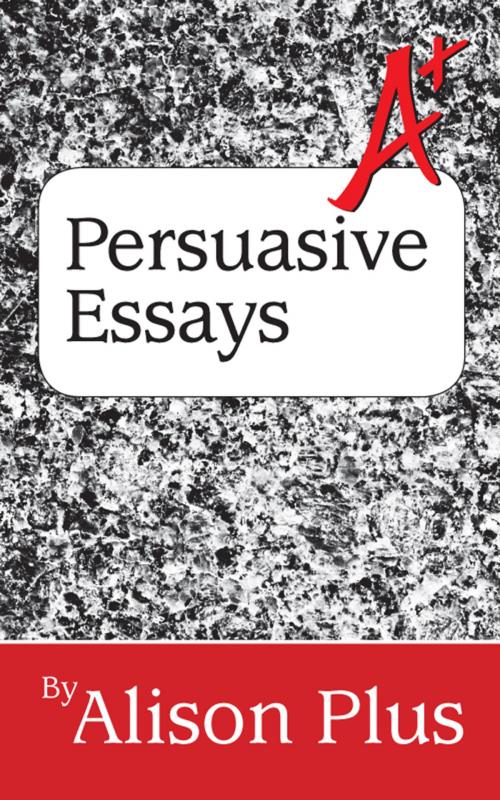A+ Guide to Persuasive Essays
Nonfiction, Reference & Language, Language Arts, Writing & Publishing, Editing & Proofreading, Composition & Creative Writing, Reference| Author: | Alison Plus | ISBN: | 1230000941563 |
| Publisher: | Four-Ply Publishing | Publication: | February 11, 2016 |
| Imprint: | Language: | English |
| Author: | Alison Plus |
| ISBN: | 1230000941563 |
| Publisher: | Four-Ply Publishing |
| Publication: | February 11, 2016 |
| Imprint: | |
| Language: | English |
Persuasive essays, also called written arguments, are among the most common writing assignments and are used across the curriculum. Yet, despite their common use, many students struggle with the basics of creating a compelling, persuasive argument. Focusing on the four keys to persuasive writing, this booklet uses a step-by-step method to start with an assignment and end with a final draft. By following the clear examples and relying on the included templates, the writer will be able to generate a solid piece of persuasive writing on any topic.
Table of Contents:
How to Use This Booklet
A Special Note about Rogerian Argument
Step One: Understand the Assignment
Step Two: The Working Outline
Step Three: The Thesis Statement
Checklist: Eight Things That Can Change Your Grade
Step Four: The Introductory Paragraph
Step Five: Body Paragraphs
Checklist: How to Test Paragraph Organization and Development
Step Six: Counter-Arguments
Step Seven: Refutations
Step Eight: The Conclusion Paragraph
Step Nine: The Final Draft
The First Layer: Revising Out Loud
The Second Layer: Sentence Triage
The Third Layer: “Find” Searches
Fourth Layer: The Fine Points
Persuasive essays, also called written arguments, are among the most common writing assignments and are used across the curriculum. Yet, despite their common use, many students struggle with the basics of creating a compelling, persuasive argument. Focusing on the four keys to persuasive writing, this booklet uses a step-by-step method to start with an assignment and end with a final draft. By following the clear examples and relying on the included templates, the writer will be able to generate a solid piece of persuasive writing on any topic.
Table of Contents:
How to Use This Booklet
A Special Note about Rogerian Argument
Step One: Understand the Assignment
Step Two: The Working Outline
Step Three: The Thesis Statement
Checklist: Eight Things That Can Change Your Grade
Step Four: The Introductory Paragraph
Step Five: Body Paragraphs
Checklist: How to Test Paragraph Organization and Development
Step Six: Counter-Arguments
Step Seven: Refutations
Step Eight: The Conclusion Paragraph
Step Nine: The Final Draft
The First Layer: Revising Out Loud
The Second Layer: Sentence Triage
The Third Layer: “Find” Searches
Fourth Layer: The Fine Points


![Cover of the book A Sentimental Journey through France and Italy [Christmas Summary Classics] by Alison Plus](https://www.kuoky.com/images/2012/december/300x300/1230000037097-g3Hh_300x.jpg)












